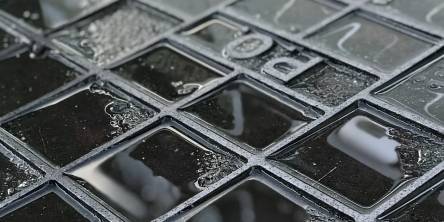The Ultimate Guide for House Moving

Shifting your home one place to another is a big task & you need to prepare a proper plan to execute the process efficiently. It is not easy to remember all the things which need to be done during the house moving process so I have created this house moving guide which will help you.
In this blog, we will help you with some tips and tricks for house moving.
Who doesn’t want to make their next move hassle-free? So, let’s get started!
1. Before 6-8 Weeks
• Plan your transportation and removalist by comparing different movers
• Make a spare folder to keep your inventory and receipt of the hired vehicle, cleaning services and removalist
• Talk to your agent when you can come to pick up the keys.
• Look for storage facilities
• Redirect your mail
• Fill your form of address change through online or post office
• Plan your space based on the size of the rooms
• Conduct garage sale or donate the not required items
• Pack boxes based on the floor plan
• Collect packing materials like tape gum, bubble wrap, markers, labels
• Schedule your repairs
• Get in touch with the local council for rubbish pick up
2. Before 2-4 Weeks
• Cross check with your removalist and make the required arrangements for them
• Fix team for disconnection or connection for utilities at both your homes: Internet, Phone, Cable, gas, water, and electricity
• Discontinue your local memberships and payment plans that are automated
• Change your address details (Below are the places you need to update your address)
• Registration of your pet should be changed or updated with the council
• Organize content insurance
• Make an inventory of items like boxes, furniture to make it easier for your moving day
• Start packing your non-essential things
• Label boxes based on contents and room
• Label your valuable and fragile items
• Prepare your essential box to manage the first few days of your moving
• Place your legal documents and jewellery at the safest place when moving
• Cross check the time with your Conveyancer or Lawyer in case you are buying the new place
• Ask for leave in the office on the day of your moving
Tips if you are renting:
• Notify the landlord prior your moving date
• Return the property as you have received
• Steam clean the carpets
• Take property inspection
3. 1-4 Days Before Moving
• Make an action plan for your moving day
• Defrost and clean your fridge and freezer
• Throw away any flammable and hazardous things
• Keep your essential tools like padlock and screwdrivers handy
• Pack a bag having snacks, bottles, important documents and snacks
• Keep the set of items aside that you have planned to move yourself
4. Moving Day
At your current home:
• Dissemble your bed and remove bedding
• Tick off the boxes and furniture that are uploaded in the moving truck
• Take another tour of the property to make sure nothing is left
• Inform your neighbours about the new address to forward any important thing
• Cross check your address with the movers and take their contact numbers
• Take your important documents with you
• Turn off all the lights and lock doors and windows
• Return the keys
At your new home:
• Check whether all your utilities are working (heating and cooling units, internet, water, phone, electricity, gas)
• Start with cleaning the kitchen
• Make your beds after reaching there
• Start your unpacking process with kitchen and proceed to the bathroom
5. Change of Address Checklist
Here is a change of address checklist to help you inform people and department for your change of address
Financial:
• Home Insurance
• Building Insurance
• Health Insurance Company
• Car Insurance Policy
• Life Policy
• Employer Payroll
• School Principal
Services:
• Mobile Services
• Internet Service
• Water
• Gas
• Cabel
• Electoral Register
• Taxation Department
• Post Office Redirection
• Leasing Company
• Garbage
• Club memberships
• Subscriptions
Health:
• Health Insurance
• Doctor
• Medicare
• Dentist
• Any other healthcare services
Others:
• Newspaper
• Gym Membership
• Pet Registration
• Shops and stores
• Friends, relatives, and regular correspondents
Few things you need to keep in mind are:
• Defrost and drain water from the freezer and refrigerator
• Disconnect and drain water from the washing machine
• Contact your manufacturer to make sure major appliances are ready to move
• Arrange for gas and electricity disconnection and fitting
• Dispose of unnecessary items
• Return things like books, videos, etc.
• Keep items like tickets and passport in your luggage
• Book someone for taking care of your children and pets
• Wash the equipment and tools
Some of the dangerous goods that you can’t carry are:
• Paint Cans
• Bleach products
• Ammunition
• Gas cylinders
• Gasoline
• Kerosene
• Vegetable oils
• Aerosols
• Chemical sets
Things that you shouldn’t be doing are:
• Don’t miss mentioning your precious and fragile items
• Avoid putting breakable and liquid things in drawers
• Don’t overload your furniture
• Avoid storing perishable foods
• Skip polishing your furniture before moving
• Keep jewellery, legal documents, insurance policies and taxation papers with you
• Take a look around to see if the moving team has forgotten something
Things you need to check in your last round
• Take a look at the garage, garden, and basement
• Check your clothes with dry cleaners
• Ensure gas supply and main powers are turned off
• Pack your important documents prior and keep them at neighbour’s place to avoid them being getting mixed with your packed goods
• Deposit your house keys
• Lock your doors and windows
Happy Moving!
Similar Articles
Learn how a tidy home boosts mental health, reduces stress, improves productivity, and enhances well-being with simple, practical cleaning tips.
Have you ever harboured dreams of constructing your dream home filled with bespoke designs, carefully selected fittings and high-quality finishes? Have you ever fretted over the durability, aesthetics, and overall quality of your construction project? Are you constantly in search for the perfect balance between beauty and strength?
Cockroaches are one of the most common pests found in homes and businesses, and they are known for their resilience and ability to thrive in even the most unsanitary conditions. These pests can quickly infest kitchens, bathrooms, and other areas, spreading bacteria, allergens, and other harmful pathogens.
A well-maintained yard drainage system is key to preserving the beauty and health of any property. Poor drainage can lead to standing water, soil erosion, and even foundational damage to structures over time.
Keep your seaside home in top shape with these 4 expert tips! Learn about weatherproof materials, smart maintenance, and managing coastal challenges effectively.
Explore the future of roofing! Discover energy-efficient materials, smart systems, and sustainable designs reshaping modern home construction trends.
HVAC stands for heating, ventilation, and air conditioning. These all-in-one systems keep your home comfortable and improve air quality throughout a building. Often used in commercial buildings, HVAC units are increasingly used in residential buildings.
Safeguard your home after storms with timely roof repairs. Detect damage early, choose durable materials, and rely on a pro for lasting protection and peace of mind.
Learn how to balance a clean home and family life with these 6 practical tips to manage clutter, involve kids in chores, and set realistic expectations.









